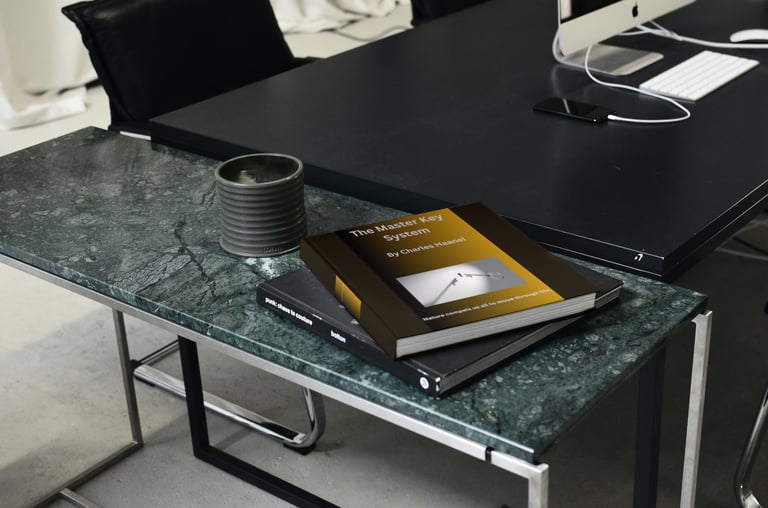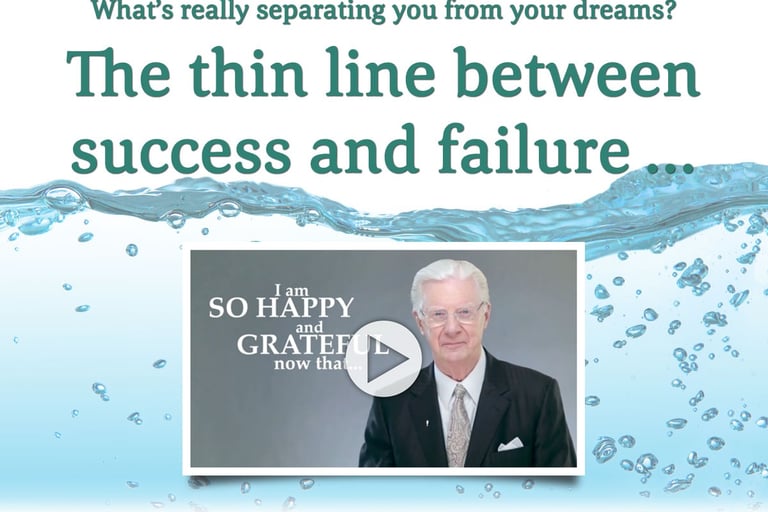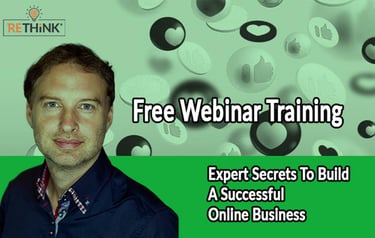Part Two FREE Full Course On The Master Key System
Whether you're looking to improve your health, relationships, finances, or overall well-being, the Master Key System is a must-read for anyone seeking personal growth and success.
MASTER KEY SYSTEM FREE FULL COURSE


Headway Personal Development is excited to introduce and offer a FREE full course on the Master Key System. The Master Key System is a timeless classic that has helped millions of people achieve success and fulfillment in their lives. Written by Charles F. Haanel...
Headway Personal Development is excited to introduce and offer a FREE full course on the Master Key System. The Master Key System is a timeless classic that has helped millions of people achieve success and fulfillment in their lives. Written by Charles F. Haanel, this book is a guide to unlocking your potential and discovering the power of your thoughts. In this free course, we'll explore the history of the Master Key System, the principles it teaches, and how you can apply these principles to your own life.
As Haanel meant for this book to be structured into a weekly format in order to get the most benefit, we're offering you the option to receive this course in a weekly email format. You'll be able to participate on the blog and share and discuss with others, or simply receive the course in your inbox each week.
Whether you're looking to improve your health, relationships, finances, or overall well-being, the Master Key System is a must-read for anyone seeking personal growth and success. Join us on this journey of self-discovery and unlock the power of your mind.
Every week, we'll post and email one part of The Master Key System. We encourage you to read it carefully, take notes, and ask any questions you may have in the comments section.
To get the most benefit from this free course, we highly recommend that you do the exercises at the end of each part and practice them for one week before moving on to the next part.
We'll also be posting questions that are designed to help you reflect on the material and apply it to your own life. Please feel free to share your answers and thoughts in the comments section.
Answers to the questions will be posted the following week along with the new part of the free course.
We're excited to embark on this journey with you and can't wait to see the progress you'll make!
Welcome back to The Master Key System free course. We hope you found the first part insightful and thought-provoking.
Now, it's time to dive into Part Two, where we will continue exploring the fundamental principles of the Master Key System.
In Part Two, Charles Haanel delves deeper into the nature of thought and how it relates to the creation of our reality. He introduces the concept of the "mental plane," which is where all thoughts and ideas originate. By gaining a deeper understanding of how our thoughts shape our reality, we can learn to control and direct them towards our desired outcomes.
In this part of the course, you will learn about the power of concentration and how to develop it. You will also discover the importance of imagination in the creative process and how to cultivate a vivid and powerful imagination.
As with Part One, it is highly recommended that you take the time to do the exercises and practice the techniques presented in Part Two. By doing so, you will not only deepen your understanding of the material but also begin to experience the transformative power of the Master Key System in your own life.
So, get ready to embark on the next stage of your journey towards unlocking your full potential and creating the life you desire. Let's dive into Part Two of The Master Key System.
Active thought is active energy; concentrated thought is a concentrated energy. Thought concentrated on a definite purpose becomes power. This is the power which is being used by those who do not believe in the virtue of poverty, or the beauty of self-denial. They perceive that this is the talk of weaklings.
The ability to receive and manifest this power depends upon the ability to recognize the Infinite Energy ever dwelling in man, constantly creating and recreating his body and mind, and ready at any moment to manifest through him in any needful manner. In exact proportion to the recognition of this truth will be the manifestation in the outer life of the individual.
Part two explains the method by which this is accomplished.
PART TWO
1. The operations of the mind are produced by two parallel modes of activity, the one conscious, and the other subconscious. Professor Davidson says: "He who thinks to illuminate the whole range of mental action by the light of his own consciousness is not unlike the one who should go about to illuminate the universe with a rushlight."
2. The subconscious' logical processes are carried on with a certainty and regularity which would be impossible if there existed the possibility of error. Our mind is so designed that it prepares for us the most important foundations of cognition, whilst we have not the slightest apprehension of the modus operandi.
3. The subconscious soul, like a benevolent stranger, works and makes provision for our benefit, pouring only the mature fruit into our lap; thus ultimate analysis of thought processes shows that the subconscious is the theatre of the most important mental phenomena.
4. It is through the subconscious that Shakespeare must have perceived, without effort, great truths which are hidden from the conscious mind of the student; that Phidias fashioned marble and bronze; that Raphael painted Madonnas and Beethoven composed symphonies.
5. Ease and perfection depend entirely upon the degree in which we cease to depend upon the consciousness; playing the piano, skating, operating the typewriter, the skilled trades, depend for their perfect execution on the process of the sub conscious mind. The marvel of playing a brilliant piece on the piano, while at the same time conducting a vigorous conversation, shows the greatness of our subconscious powers.
6. We are all aware how dependent we are upon the subconscious, and the greater, the nobler, the more brilliant our thoughts are, the more it is obvious to ourselves that the origin lies beyond our ken. We find ourselves endowed with tact, instinct, sense of the beautiful in art, music, etc., or whose origin or dwelling place we are wholly unconscious.
7. The value of the subconscious is enormous; it inspires us; it warns us; it furnishes us with names, facts and scenes from the storehouse of memory. It directs our thoughts, tastes, and accomplishes tasks so intricate that no conscious mind, even if it had the power, has the capacity for.
8. We can walk at will; we can raise the arm whenever we choose to do so; we can give our attention through eye or ear to any subject at pleasure. On the other hand, we cannot stop our heartbeats nor the circulation of the blood, nor the growth of stature, nor the formation of nerve and muscle tissue, nor the building of the bones, nor many other important vital processes.
9. If we compare these two sets of action, the one decreed by the will of the moment, and the other proceeding in majestic, rhythmic course, subject to no vascillation, but constant at every moment, we stand in awe of the latter, and ask to have the mystery explained. We see at once that these are the vital processes of our physical life, and we cannot avoid the inference that these all-important functions are designedly withdrawn from the domain of our outward will with its variations and transitions, and placed under the direction of a permanent and dependable power within us.
10. Of these two powers, the outward and changeable has been termed the "Conscious Mind," or the "Objective Mind" (dealing with outward objects). The interior power is called the "Subconscious Mind," or the "Subjective Mind," and besides its work on the mental plane it controls the regular functions which make physical life possible.
11. It is necessary to have a clear understanding of their respective functions on the mental plane, as well as of certain other basic principles. Perceiving and operating through the five physical senses, the conscious mind deals with the impressions and objects of the outward life.
12. It has the faculty of discrimination, carrying with it the responsibility of choice. It has the power of reasoning--whether inductive, deductive, analytical or syllogistic--and this power may be developed to a high degree. It is the seat of the will with all the energies that flow therefrom.
13. Not only can it impress other minds, but it can direct the subconscious mind. In this way the conscious mind becomes the responsible ruler and guardian of the subconscious mind. It is this high function which can completely reverse conditions in your life.
14. It is often true that conditions of fear, worry, poverty, disease, inharmony and evils of all kinds dominate us by reason of false suggestions accepted by the unguarded subconscious mind. All this the trained conscious mind can entirely prevent by its vigilant protective action. It may properly be called "the watchman at the gate" of the great subconscious domain.
15. One writer has expressed the chief distinction between the two phases of mind thus: "Conscious mind is reasoning will. Subconscious mind is instinctive desire, the result of past reasoning will."
16. The subconscious mind draws just and accurate inferences from premises furnished from outside sources. Where the premise is true, the subconscious mind reaches a faultless conclusion, but, where the premise or suggestion is an error, the whole structure falls. The subconscious mind does not engage in the process of proving. It relies upon the conscious mind, "the watchman at the gate," to guard it from mistaken impressions.
17. Receiving any suggestions as true, the subconscious mind at once proceeds to act thereon in the whole domain of its tremendous field of work. The conscious mind can suggest either truth or error. If the latter, it is at the cost of wide-reaching peril to the whole being.
18. The conscious mind ought to be on duty during every waking hour. When the "watchman" is "off guard," or when its calm judgment is suspended, under a variety of circumstances, then the subconscious mind is unguarded and left open to suggestion from all sources. During the wild excitement of panic, or during the height of anger, or the impulses of the irresponsible mob, or at any other time of unrestrained passion, the conditions are most dangerous. The sub- conscious mind is then open to the suggestion of fear, hatred, selfishness, greed, self- depreciation and other negative forces, derived from surrounding persons or circumstances. The result is usually unwholesome in the extreme, with effects that may endure to distress it for a long time. Hence, the great importance of guarding the subconscious mind from false impressions.
19. The subconscious mind perceives by intuition. Hence, its processes are rapid. It does not wait for the slow methods of conscious reasoning. In fact, it can not employ them.
20. The subconscious mind never sleeps, never rests, any more than does your heart, or your blood. It has been found that by plainly stating to the subconscious mind certain specific things to be accomplished, forces are set in operation that lead to the result desired. Here, then, is a source of power which places us in touch with Omnipotence. Here in is a deep principle which is well worth our most earnest study.
21. The operation of this law is interesting. Those who put it into operation find that when they go out to meet the person with whom they anticipate a difficult interview, something has been there before them and dissolved the supposed differences; everything is changed; all is harmonious; they find that when some difficult business problem presents itself they can afford to make delay and something suggests the proper solution; everything is properly arranged; in fact, those who have learned to trust the subconscious find that they have infinite resources at their command.
22. The subconscious mind is the seat of our principles and our aspirations. It is the fount of our artistic and altruistic ideals. These instincts can only be overthrown by an elaborate and gradual process of undermining the innate principles.
23. The subconscious mind can not argue controversially. Hence, if it has accepted wrong suggestions, the sure method of overcoming them is by the use of a strong counter suggestion, frequently repeated, which the mind must accept, thus eventually forming new and healthy habits of thought and life, for the subconscious mind is the seat of Habit. That which we do over and over becomes mechanical; it is no longer an act of judgment, but has worn its deep grooves in the subconscious mind. This is favorable for us if the habit be wholesome and right. If it be harmful, and wrong, the remedy is to recognize the omnipotence of the subconscious mind and suggest present actual freedom. The subconscious being creative and one with our divine source will at once create the freedom suggested.
24. To sum up: The normal functions of the subconscious on the physical side have to do with the regular and vital processes, with the preservation of life and the restoration of health; with the care of offspring, which includes an instinctive desire to preserve all life and improve conditions generally.
25. On the mental side, it is the storehouse of memory; it harbors the wonderful thought messengers, who work, unhampered by time or space; it is the fountain of the practical initiative and constructive forces of life: It is the seat of habit.
26. On the spiritual side, it is the source of ideals, of aspiration, of the imagination, and is the channel through which we recognize our Divine Source, and in proportion as we recognize this divinity do we come into an understanding of the source of power.
27. Some one may ask: "How can the subconscious change conditions?" The reply is, because the subconscious is a part of the Universal Mind and a part must be the same in kind and quality as the whole; the only difference is one of degree. The whole, as we know, is creative, in fact, it is the only creator there is, consequently, we find that mind is creative, and as thought is the only activity which the mind possesses thought must necessarily be creative also.
28. But we shall find that there is a vast difference between simply thinking, and directing our thought consciously, systematically and constructively; when we do this we place our mind in harmony with the Universal Mind, we come in tune with the Infinite, we set in operation the mightiest force in existence, the creative power of the Universal Mind. This, as everything else, is governed by natural law, and this law is the "Law of attraction," which is that Mind is creative, and will automatically correlate with its object and bring it into manifestation.
29. Last week I gave you an exercise for the purpose of securing control of the physical body; if you have accomplished this you are ready to advance. This time you will begin to control your thought. Always take the same room, the same chair, and the same position, if possible. In some cases it is not convenient to take the same room, in this case simply make the best use of such conditions as may be available. Now be perfectly still as before, but inhibit all thought; this will give you control over all thoughts of care, worry and fear, and will enable you to entertain only the kind of thoughts you desire. Continue this exercise until you gain complete mastery.
30. You will not be able to do this for more that a few moments at a time, but the exercise is valuable, because it will be a very practical demonstration of the great number of thoughts which are constantly trying to gain access to your mental world.
31. Next week you will receive instructions for an exercise which may be a little more interesting, but it is necessary that you master this one first.
"Cause and effect is as absolute and undeviating in the hidden realm of thought as in the world of visible and material things. Mind is the master weaver, both of the interior garment of character and the outer garment of circumstance." -- James Allen
PART TWO Study Questions
11. What are the two modes of mental activity?
12. Upon what do ease and perfection depend?
13. What is the value of the subconscious?
14. What are some of the functions of the conscious mind?
15. How has the distinction between the conscious and subconscious been expressed?
16. What method is necessary in order to impress the subconscious?
17. What will be the result?
18. What is the result of the operation of this law?
19. What names has been given to this law?
20. How is the law stated?
PART ONE - Study Questions with Answers
1. What is the world without in its relation to the world within? The world without is a reflection of the world within.
2. Upon what does all possession depend? All possession is based on consciousness.
3. How is the individual related to the objective world? The individual is related to the objective world by the objective mind; the brain is the organ of this mind.
4. How is he related to the Universal Mind? He is related to the Universal Mind by the subconscious mind; the Solar Plexus is the organ of this mind.
5. What is the Universal Mind? The Universal Mind is the life principle of every atom which is in existence.
6. How can the Individual act on the Universal? The ability of the individual to think is his ability to act upon the Universal and bring it into manifestation.
7. What is the result of this action and interaction? The result of this action and interaction is cause and effect; every thought is a cause and every condition an effect.
8. How are harmonious and desirable conditions secured? Harmonious and desirable conditions are obtained by right thinking.
9. What is the cause of all discord, inharmony, lack and limitation? Discord, inharmony, lack and limitation are the result of wrong thinking.
10. What is the source of all powers? The source of all power is the world within, the Universal Fountain of Supply, the Infinite Energy of which each individual is an outlet.
INTRODUCTION - PART TWO
Our difficulties are largely due to confused ideas and ignorance of our true interests. The great task is to discover the laws of nature to which we are to adjust ourselves. Clear thinking and moral insight are, therefore, of incalculable value. All processes, even those of thought, rest on solid foundations.
The keener the sensibilities, the more acute the judgment, the more delicate the taste, the more refined the moral feelings, the more subtle the intelligence, the loftier the aspiration--the purer and more intense are the gratifications which existence yields. Hence it is that the study of the best that has been thought in the world gives supreme pleasure. The powers, uses and possibilities of the mind under the new interpretations are incomparably more wonderful that the most extravagant accomplishment, or even dreams of material progress. Thought is energy.
You can listen on audio to Part Two
Insights:
Part two emphasizes the importance of focusing on what we want rather than what we don't want. This is a critical shift in mindset that can help us attract more of what we desire into our lives.
We are reminded that our thoughts have power, and by using our imagination, we can create a clear mental image of what we want to achieve.
Haanel explains that our mental images are like seeds that we plant in our subconscious mind. When we nurture these seeds with faith and persistence, they can eventually manifest in our lives.
Suggestions:
To get the most out of part two, take time to reflect on what you truly want in life. Use your imagination to create a vivid mental image of your desired outcome.
Practice affirmations to reinforce positive thoughts and beliefs. Write down affirmations that support your mental image and repeat them often.
Remember to be persistent and consistent in your efforts. Just like planting a seed, it takes time and effort for your mental image to manifest in your reality.
Conclusion:
Part two of the Master Key System is all about harnessing the power of our thoughts to manifest our desires. By focusing on what we want and using our imagination to create a clear mental image, we can begin to attract more of what we desire into our lives. Remember to be persistent, consistent, and have faith in the power of your thoughts. With practice, you can become a master of your own destiny.




